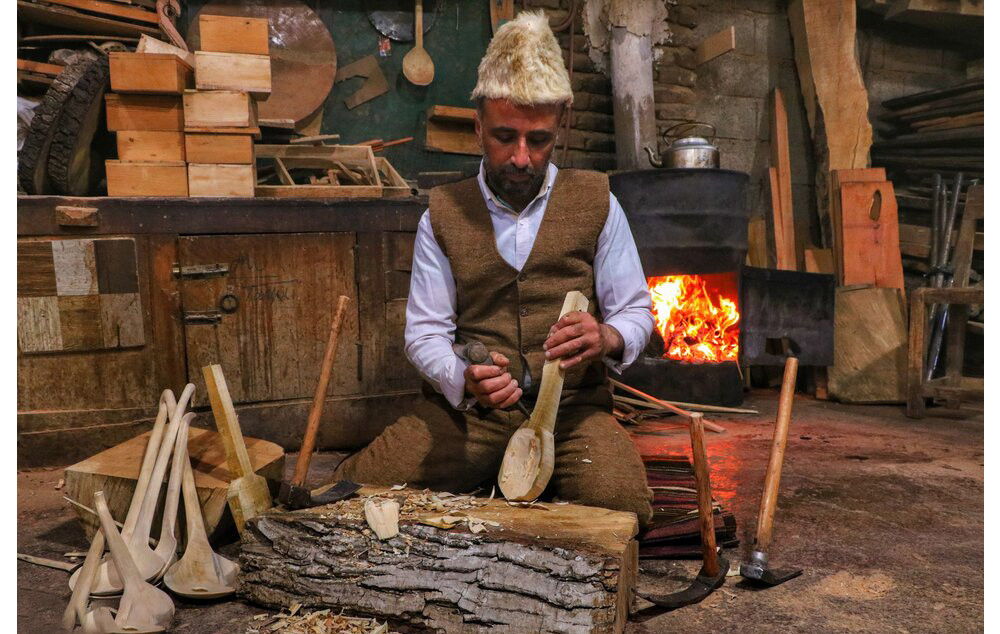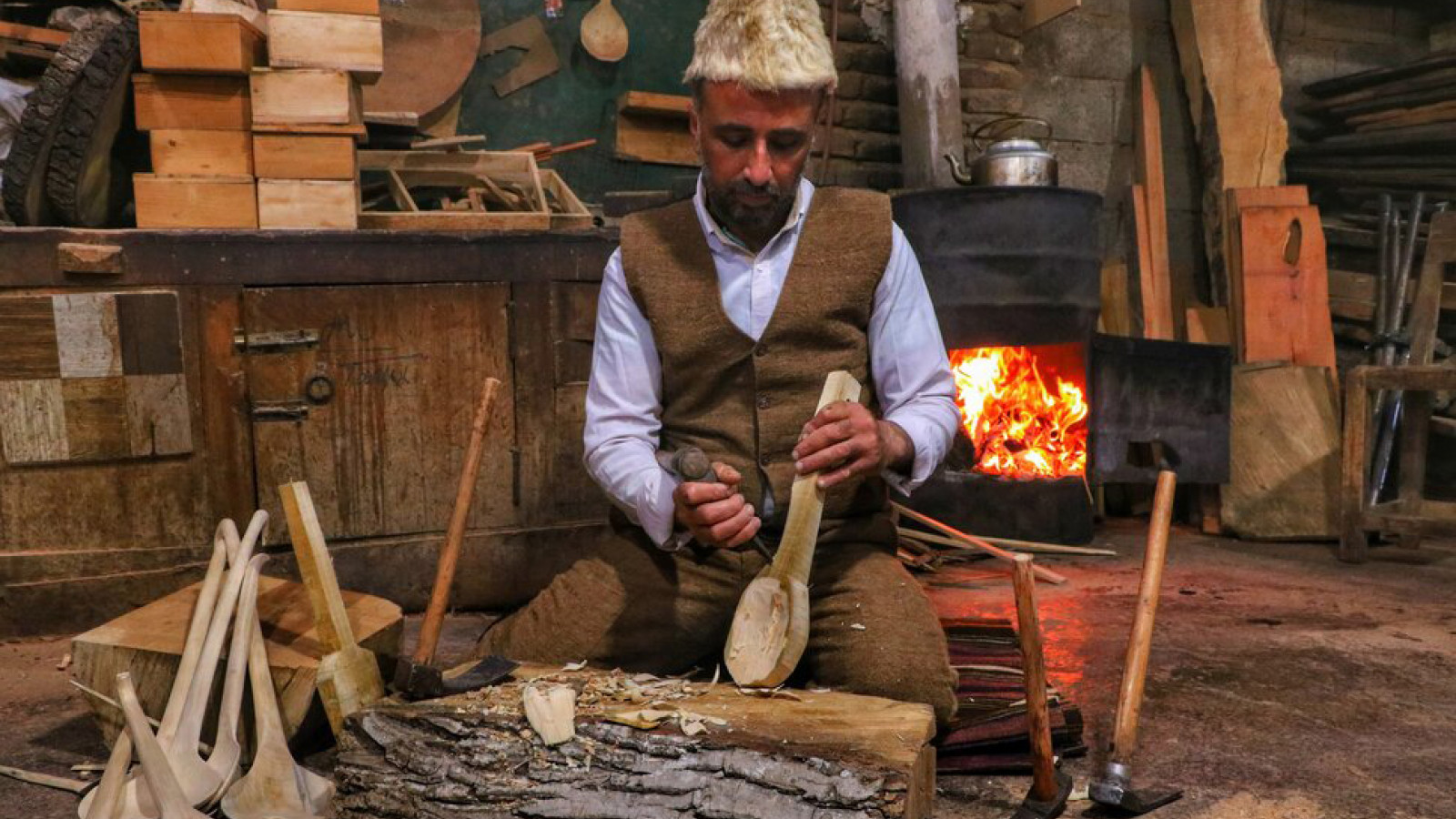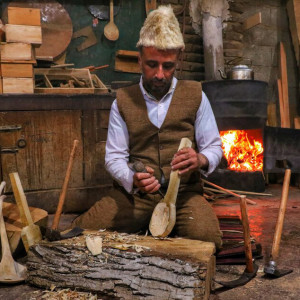
Chootashi of Mazandaran
Chootashi, Lactashi or wood craving is one of the local and original handicrafts of the regions by the Khazar Sea. This word consists of two parts “Cho” and “Tarash”. Cho is the short form of “Choob” or wood, and Tarash means carving. This art is very similar to art of wood carving and is often used to make tools and utensils that are used in daily life. Sustainable and diverse supply of wood in the jungle of Tabarestan, which is the old name of Mazandaran, have provided the necessary ground for making wood objects throughout history. In Mazandaran the art of Chootashi is used to make tools and daily utensils such as Kacheh or a wooden spoon, Ketra or a wooden ladle, Joleh that is a kind of jug with wide opening and thin neck that is created in different sizes, it was used to keep milk and diaries. There is also Kelez which is a wooden utensil that is used instead of ladle to mix or used as a measure cup.
This art/craft is popularly practiced in various cities of Mazandaran such as Noor, Chamestan, Amol, Babol, Savadkuh, Sari, Behshahr, Neka and other cities of Gilan province. The people who practiced Chootash, or Chootashan, are highly regarded in the history of Tabarestan. According to the historians, folk people invited itinerant or non-itinerant Chootashan, coppersmiths, and tailors of villages and cities to their homes to make their desired objects for them. They were warmly taken care of until their job was finished. This celebration was held more pleasantly before weddings. One of the usages of Chootash was related to the prayers and vows of Mazandaran folk. For example, the Chootashan donated their best or first product to the holy shrines of the village believing that this act will bring blessing and goodness to their lives. Or when a prayer was granted they decided to donate a carved utensil to the shrine. Wood from trees such as Maple, Box, Beech, Oak, Walnut, European ash, Elm, Plane, Ulmus Glabra, Parrotia and Zelkova are used in this craft.

